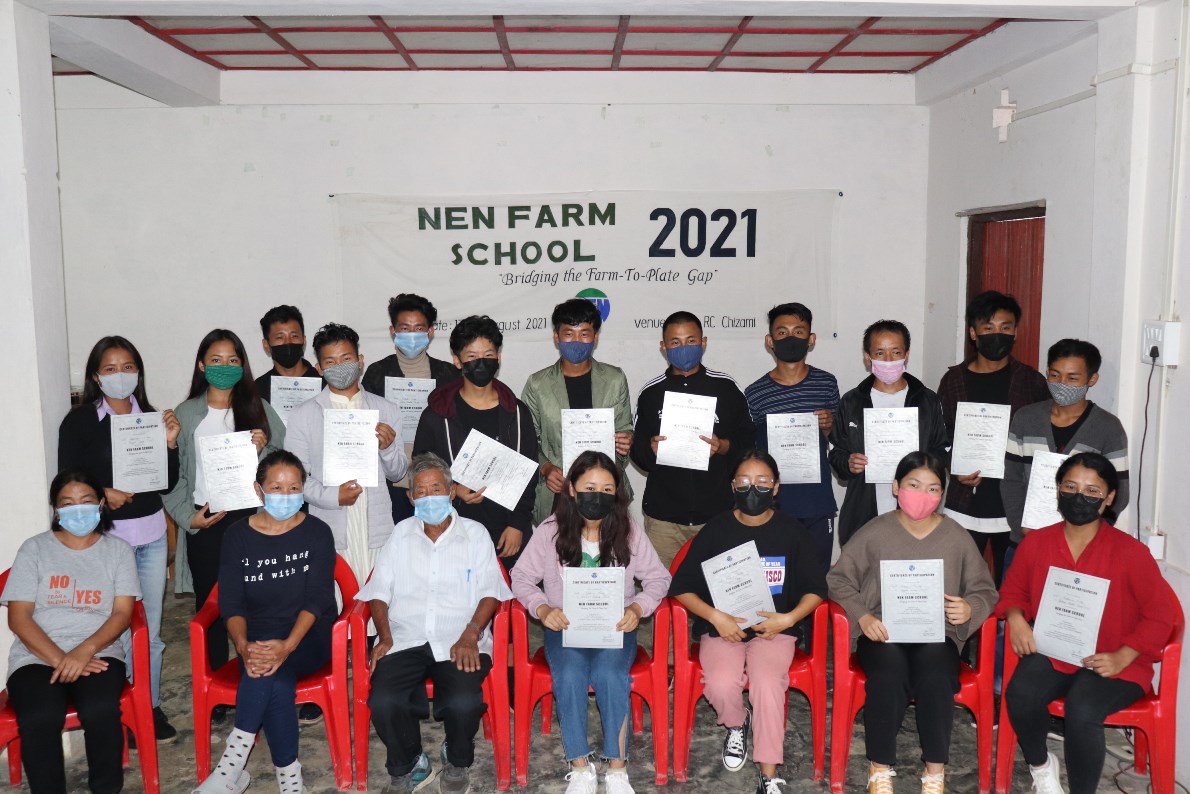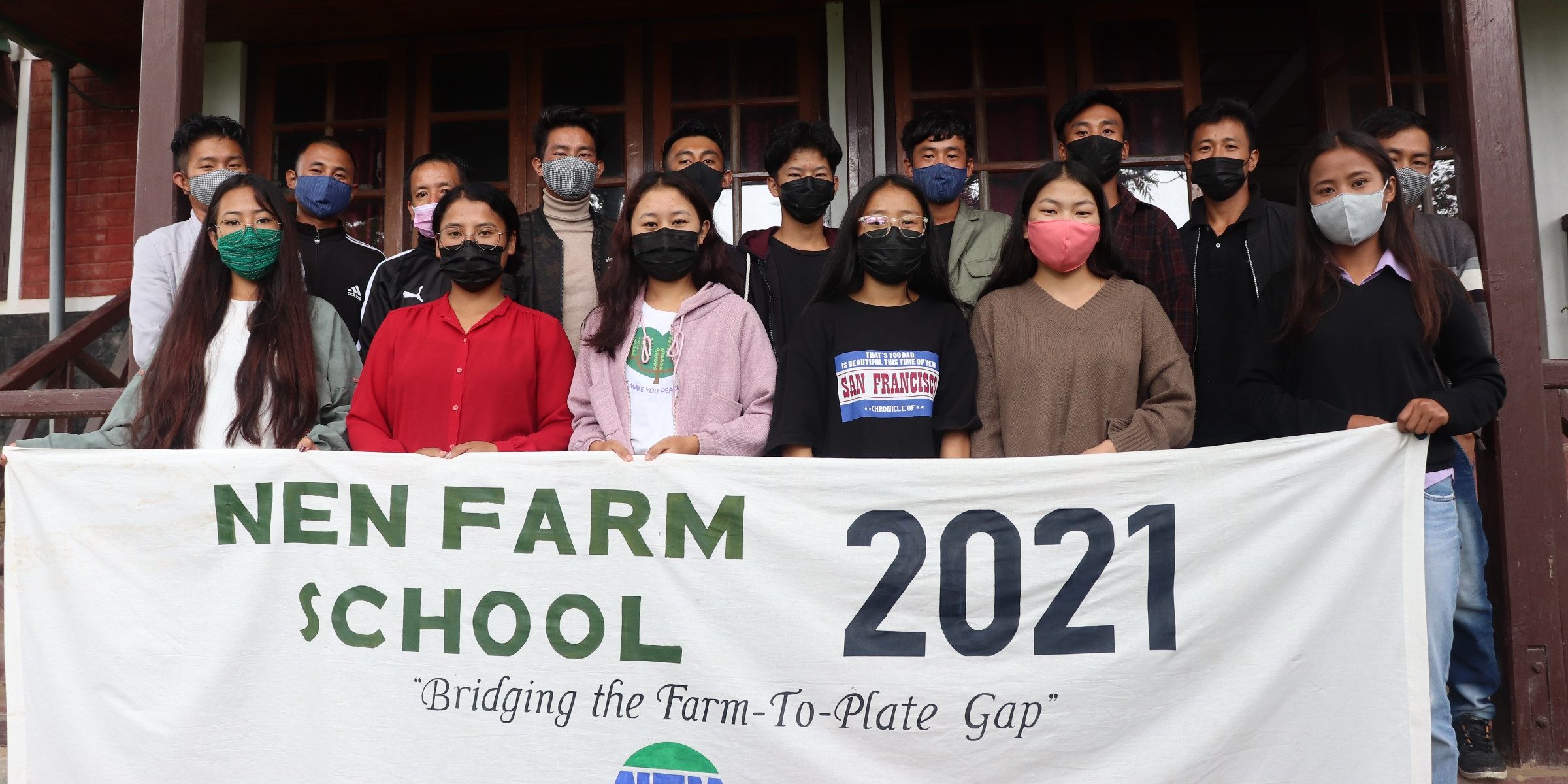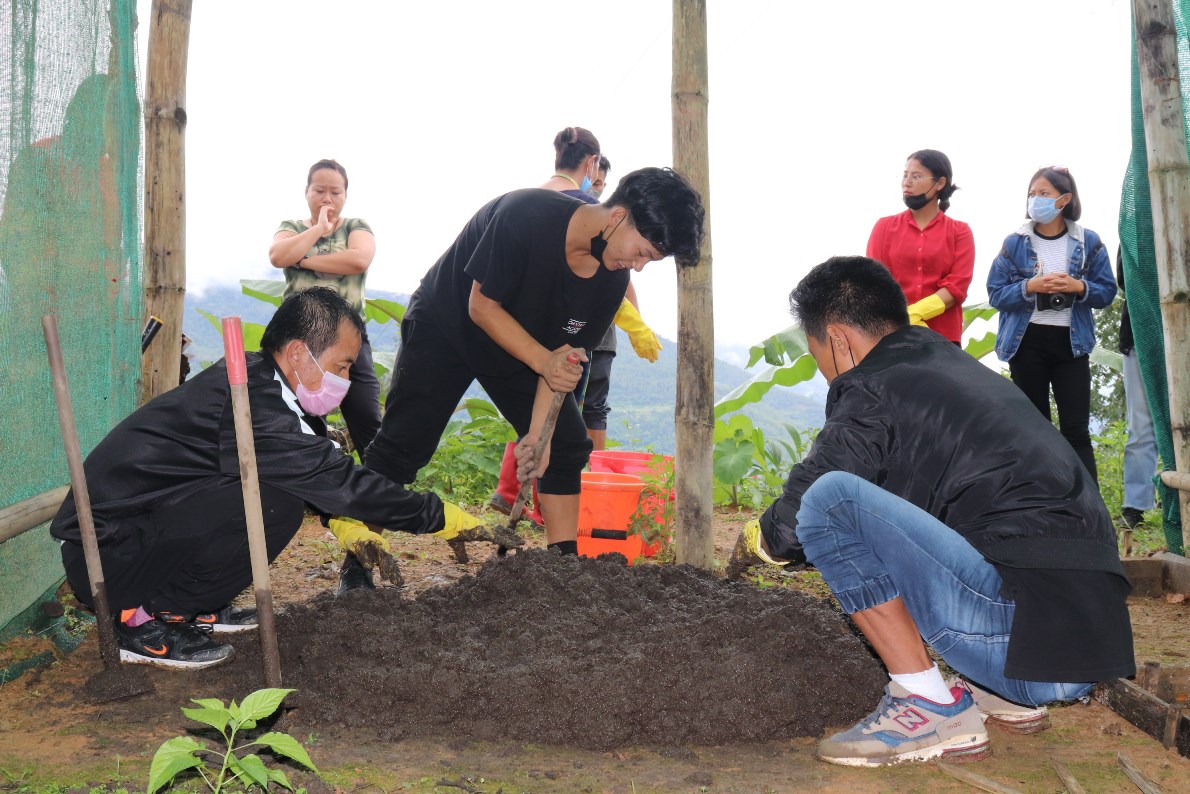
The 16 young participants were all from in and around Chizami area. NEN organised it after a year’s gap with the national and state lockdown. NEN Farm was redesigned to cater to the rural youth of creating more awareness on responsible consumption by supporting locally sourced produce, grown and harvested with traditional farming methods that are more sustainable and healthier for our environment.
The curriculum focused on equipping the rural youths with additional skills to support their existing knowledge and experiences on traditional farming. The participants spend 2 days engaging in hands-on practicals on composting, bamboo vinegar production, and NeroDoco technique of propagation which will assist existing organic agricultural practices and a way forward towards sustainable and eco-friendly farming practices in our fields and farms.
Technical skills were imparted by the NEN team on Bamboo Vinegar, Nerodoco and Vermi-composting and Dr. Esther T. Longkumer, CTO, Soil Science, KVK-ICAR, Porba introduced soil health and management through scientific and traditional methods.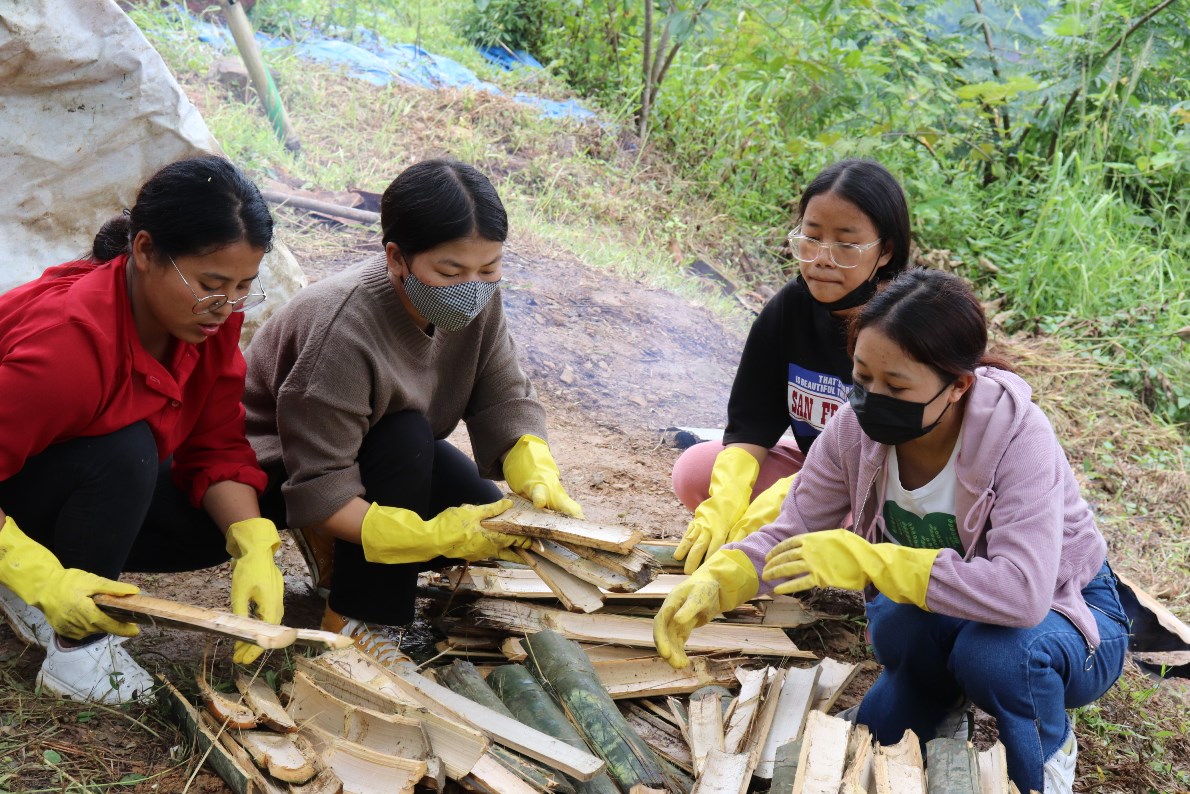
Seno Tsuhah, Honorary Member, highlighted the importance of understanding our local food system and how it is interrelated to everything around us in a community. “ Our fruits and vegetables may not look as pretty as the ones you get in the market, but our local food are much more nutritious and what’s more more satisfying then growing and eating our own food” Further, stressing on the importance of understanding one’s own culture as indigenous people living in an environment which is at threat with the ever changing lifestyles. Understanding the value of our sovereignty as indiginoues communities and the need to protect such values.
The Youth also spent an evening interacting with Community Elder Khenemvu, who shared on the importance of growing one’s own food as a way of life. The community elder enlightened the youths with stories and ways of traditional living, which was simple and honest. He shared the story of a Japanese soldier who stayed back in the community post the 2nd world war, who is the perfect example of diligence and resilience, a man who despite the hardship and challenges did not give up and continued his vision to grow food.
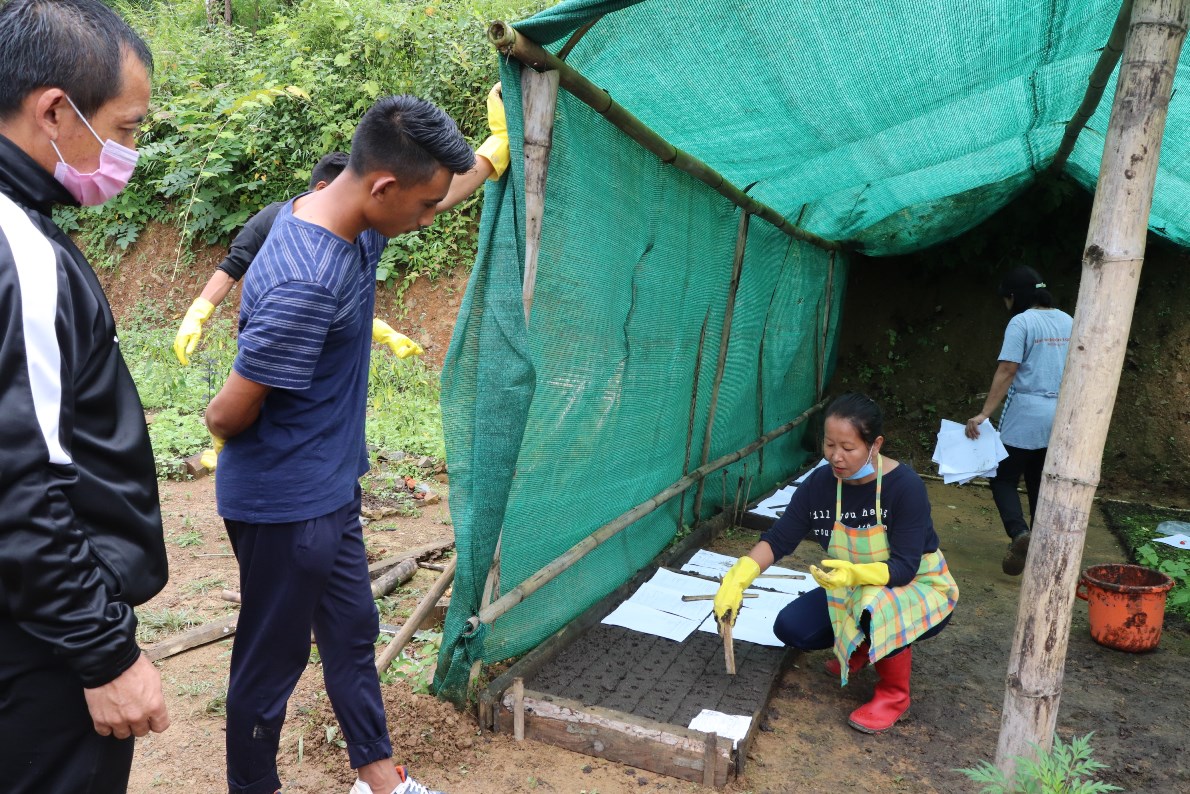
The Community elder shared some words of wisdom through his personal experiences and in an endnote shared a saying “ One must not wait for water to come to us, we must find it and if we are able find a source, even the size of our smallest finger, we can grow food in our terrace farms” emphasising on the need to learn to utilize our resources available to us instead of waiting for opportunities to be handed down.

Reflecting on the takeaways of the program, Welhitshe pledged to work towards food sovereignty by remarking, “I have learned the importance of seeds and the training has brought me closer to nature, and I need to explore ways to utilise these new skills.” Another participant, Tshekhrozou while highlighting the ignorance of youngsters from rural settings on valuing natural resources added, “I learned about the privileges of growing our own food and enjoy the fruits of our harvest”
The 2 days training ended with a valedictory program where participants received certificates of participation and shared their experiences and commitment to take the learned skills back to their communities and continue to create awareness on the importance of growing ones’ food and understanding the value of our biodiversity and the need to preserve and protect it, creating rippling effects and igniting similar spaces of discussions in their respective communities.
